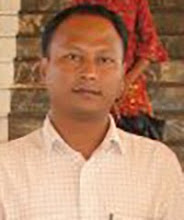National Defence and Security Council
Myanmar is moving towards is unclear. New institutions and practices, there is a undemocratic practice—military is over power, it controls the configuration of the state. Military is above not only president but the constitution.
Article 20(b) of the Constitution gives the military complete authority over the ministries of defence, home and border affairs as it appoints all three ministers.
Articles 109(b) and 141(b) reserve 25 % of parliamentary seats for the military, which gives them a veto over any attempts to alter the Constitution because of the 75% votes required for important laws to change in parliament.
Article 60, the new National Defence and Security Council (NDSC) has 11 members, 6 of them are from military
1. One of two Vice Presidents who was appointed from military
2. Armed Forces Commander-in-Chief
3. Armed Forces Deputy Commander-in-Chief
4. Minister of Defence from military allocated by constitution
5. Minister of Home Affairs from military allocated by constitution
6. Minister of Border Affairs from military allocated by constitution
In NDSC 6 members from military and 5 members from government. Each time voting in meeting, only majority military group will win. This means that constitution gives military veto power, military only has power to change, repeal or amend constitution and finally all three pillars of democracy are under the military.
Chapter V of the Constitution includes expansive powers for NDSC:
NDSC :
Recommend for the President to grant amnesty
Approve the President's act of severing foreign diplomatic relations
Coordinate with the President to take military action against aggressors
Approve the Military's ability to conscript citizens
Approve the President's nomination for Commander-in-Chief
Coordinate with the President in declaring a state of emergency
Exercise legislative, executive and judiciary powers during a state of emergency
Exercise sovereign power during a state of emergency
Chapter XI of the Constitution allows the NDSC to impose martial law, disband Parliament and rule directly if a state of emergency is declared.
The president can give the commander of the military complete power over state resources, including the power to allow conscription from any segment of society.
Ex Generals can return to direct military rule if desired.
Constitution gives power military to coup anytime if it is necessary.
The military, therefore, has moved from an illegal to a veto player in the new polity:
So, juntas said reform process but the question is how to reform under this constitution with fully power of military.
Kyaw Min
04/04/2008








|